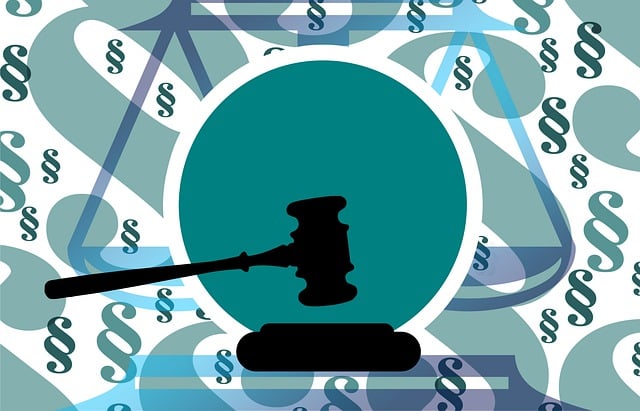Corporate Crime Investigations expose fraud and corruption, requiring a balance between justice and consequences, particularly in plea bargaining. The Ethical Implications of Plea Bargaining Decisions are scrutinized due to their impact on individuals and organizations, while aiming for effective prosecutions. This delicate task involves considering fairness, culpability, and the value of insights from defendants, shaping public perception of corporate behavior and the integrity of the legal system.
Corporate Crime Investigations delve into complex cases where businesses or their representatives engage in illegal activities. Understanding these inquiries involves navigating intricate legal landscapes, especially through plea bargaining—a process that offers defendants reduced sentences in exchange for cooperation with prosecutors. While effective in securing confessions, plea bargains present ethical implications of plea bargain decisions, challenging the pursuit of justice and corporate accountability. This article explores these dynamics, focusing on the balance between legal strategies and ethical considerations in corporate crime cases.
- Understanding Corporate Crime Investigations
- The Role of Plea Bargaining in Legal Proceedings
- Ethical Dilemmas Arising from Plea Bargain Decisions
- Impact on Justice and Corporate Accountability: A Balancing Act
Understanding Corporate Crime Investigations
Corporate Crime Investigations delve into complex and sensitive matters where businesses or their representatives engage in illegal activities. These investigations, often led by law enforcement or regulatory bodies, aim to uncover fraud, corruption, and other criminal offenses within corporate structures. Understanding this process is crucial as it involves navigating intricate financial transactions, legal frameworks, and the ethical implications of plea bargaining decisions.
In the realm of white-collar crime, investigators must balance the need for justice with the potential consequences for individuals and organizations. Plea bargaining has emerged as a strategy to avoid indictment, offering accused parties a chance to mitigate their charges or sentences in exchange for cooperation with prosecutors. This approach carries significant ethical considerations, especially when an unprecedented track record of successful prosecutions is at stake.
The Role of Plea Bargaining in Legal Proceedings
Plea bargaining plays a significant role in corporate crime investigations, offering both advantages and ethical implications. This process allows for the resolution of criminal cases where defendants—in this instance, often corporate and individual clients—agree to plead guilty to a lesser charge or accept specific terms set by the prosecution in exchange for reduced penalties or avoiding indictment altogether. It’s seen as a crucial tool for simplifying complex legal proceedings and promoting efficient justice.
However, the ethical implications of plea bargaining decisions cannot be overlooked. The unprecedented track record of using this method has sparked debates regarding its fairness and potential to encourage guilty pleas without necessarily ensuring true culpability. This delicate balance between swift justice and protecting the rights of all parties involved is a key consideration in navigating corporate crime investigations successfully while upholding the integrity of the legal system.
Ethical Dilemmas Arising from Plea Bargain Decisions
When dealing with corporate crime investigations, one of the most complex ethical dilemmas arises from plea bargain decisions. Prosecutors often face a delicate balance between securing justice and achieving extraordinary results in white collar defense cases. The ethical implications of these choices are profound, as they can significantly impact the lives of individuals and the overall perception of fairness in the legal system.
Plea bargains, while avoiding indictment for some, raise questions about whether they compromise the integrity of the judicial process. Prosecutors must consider if accepting a plea agreement that includes reduced sentences or immunity from prosecution is truly in the interest of justice. This decision can be further complicated by the potential for defendants to provide valuable insights into larger criminal schemes, which could lead to achieving even greater justice.
Impact on Justice and Corporate Accountability: A Balancing Act
The impact of corporate crime investigations lies not only in exposing misconduct but also in balancing justice with the intricate web of corporate accountability. As these inquiries delve into the heart of organizations, they present a delicate act—ensuring that justice is served while considering the broader economic implications. The strategy employed can significantly affect the trajectory of cases, especially when it comes to plea bargaining decisions. Herein lies the ethical dilemma: should prosecutors prioritize individual guilt or corporate reform?
The use of plea bargains in white-collar and economic crimes has sparked debates due to its potential to influence corporate behavior and public perception. The ethical implications extend beyond the immediate resolution of cases, as these deals might encourage a general criminal defense strategy that focuses on mitigating punishment rather than systemic change. However, with an unprecedented track record of successful investigations, the balance is gradually shifting towards a more transparent and accountable corporate landscape.
Corporate crime investigations pose complex challenges, especially when considering the Ethical Implications of Plea Bargaining Decisions. While plea bargaining can facilitate legal proceedings and promote accountability, it also raises concerns about potential coercion, disparity in sentencing, and the incentive for further criminal activity. Striking a balance between ensuring justice and fostering corporate accountability requires careful consideration of these ethical dilemmas. By understanding the nuances of plea bargaining, we can work towards more equitable outcomes that hold corporations and individuals alike responsible for their actions.






